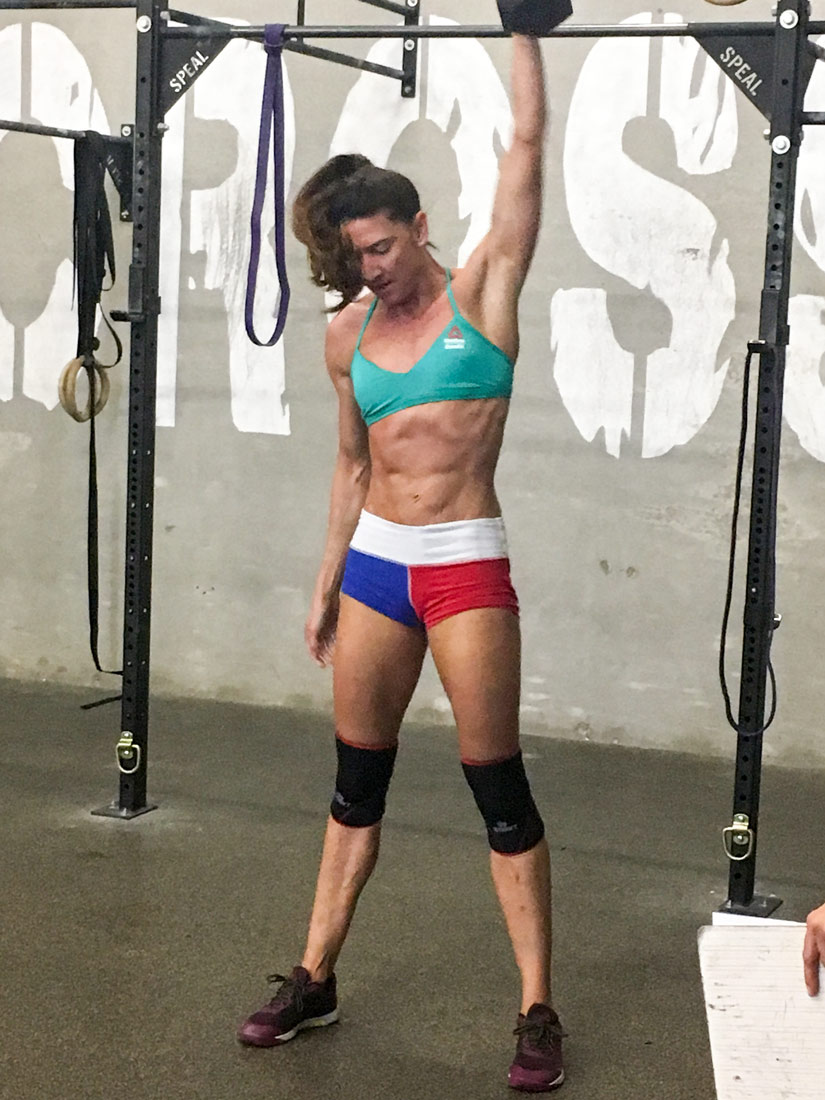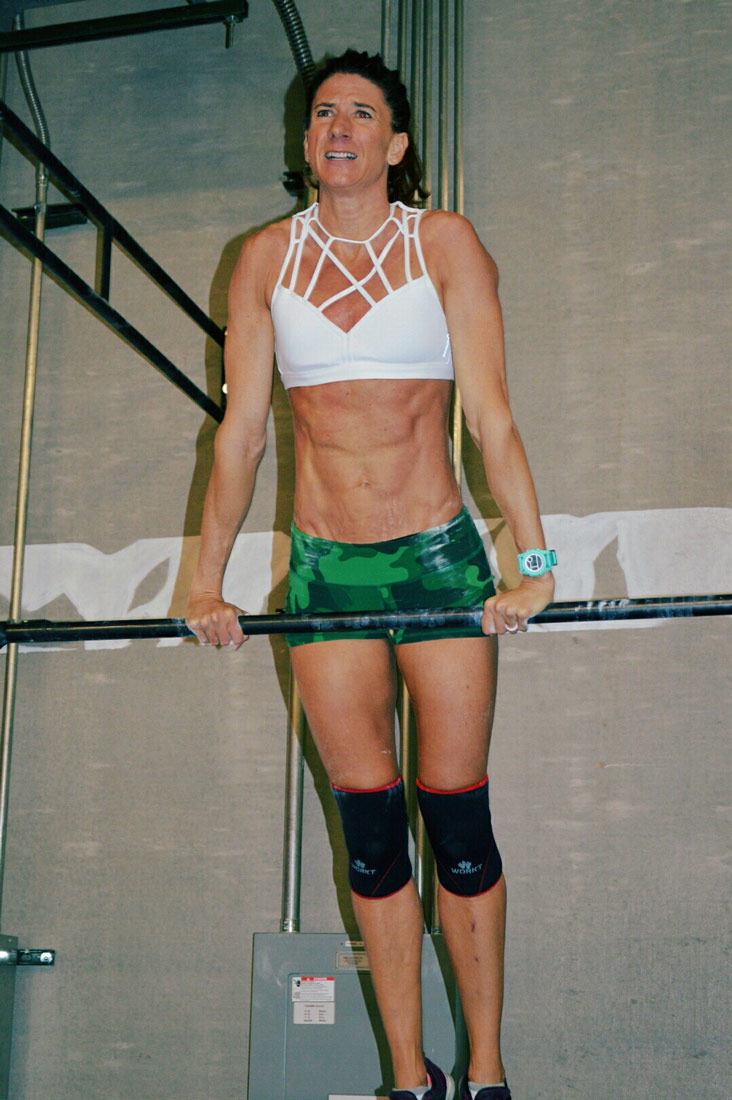When the Open comes around, everyone wants an edge.
But the secret to a successful Open isn’t in neon-green containers with the words “shred” and “energy” on the side. Nor is it found in a tub of cookies-and-cream protein powder.
Open performance—and health in general—depends on three things: hard work, consistent training and what’s in your kitchen.

Becky Harsh, a CrossFit Seminar Staff member, a Certified CrossFit Coach (CF-L4), and the owner of CrossFit Beaver Menace in Castle Rock, Colorado, said the foundation of health and performance is always real food.
“That’s where we start,” she said.
Nutrition First
Harsh, 43, has done every single Open workout since inception in 2011.
“I find it interesting to use my body as its own science experiment. Like what can I do with this? How does eating this way change my output and my performance?” she said.
When a member approaches Harsh about changing his or her diet, Harsh said she always starts with CrossFit Founder Greg Glassman’s original nutrition prescription: meats and vegetables, nuts and seeds, some fruit, little starch and no sugar.
It’s only after getting rid of added sugar and processed food that people start to understand what food quality will do for them and how they will feel when they stop dumping junk into their system.
“That’s a big eye opener for them,” Harsh said.
Once a member eats real food in reasonable quantities for a number of months and approaches Harsh about improving nutrition, she tells him or her about the Zone Diet.
Harsh herself follows the Zone and tracks her macronutrients in Zone proportions: 40 percent carbohydrate, 30 percent protein and 30 percent fat.
“I try to balance across the meals so I feel good and I have enough energy, but I do have a certain number of protein, carbs and fat that I’m trying to hit by the end of the day,” Harsh said.
What About Supplements?
Harsh doesn’t use any supplements, except for the occasional protein shake if she’s stuck somewhere and can’t get real food. Like most CrossFit athletes participating in the Open, Harsh doesn’t have any aspirations of competing beyond the first stage of the Games season. For her, the best supplement is recovery.
“Supplements aren’t necessary for any athlete that is just going to their local affiliate, trying to understand where their fitness is at in this moment and compare it to last year. It just doesn't make any sense to be throwing in a pre-workout. That’s not real life,” Harsh said.
Even in the midst of the Open, it’s important to remember why most of us are training, which is to be healthy and fit, to feel good and enjoy life.

“In the real world, if something goes south or shit gets real, we don’t have the luxury of saying, ‘Hey, life, give me just a second. ... I need to drink my pre-workout and then wait 15 minutes before anything can actually happen,’” Harsh said.
For her, supplements give an unrealistic understanding of her fitness.
“And more than anything, CrossFit is simply about fitness,” Harsh said.
As with any competition, the Open is a poor time to start experimenting with supplements. Athletes are encouraged to stick to their normal plans.
The Open and Nutrition
When thinking about nutrition for the Open and beyond, Harsh said her number one tip is to always plan ahead. Make it easy to eat well, and you’ll have a much easier time staying on track, she said.
“Don’t get caught in a scenario where you can only make bad choices,” Harsh said. “Set yourself up for success.”
Some people do well with intermittent fasting, but Harsh doesn’t like to go too long without eating. She stays on track by eating every three or four hours during the day.
Fill up on the good stuff, like vegetables, fruit and good quality protein, Harsh said, and only go for the occasional treats if you’ve eaten well first.
For those looking to make improvements to their nutrition in a healthy, sustainable way, the Open is often a powerful motivator.
“It’s a great way for members to make some changes and see what happens,” Harsh said.
For that reason CrossFit Beaver Menace runs a nutrition challenge leading up to the Open, focusing on how eating well affects health, well-being and performance.
“It’s a really good time for us all to dial it in and see what happens, and then throw down in a safe environment,” Harsh said.
The truth is that health and fitness go far beyond Open scores and nutrition challenges. The Open is five weeks, and nutrition challenges end. But a commitment to eating well and working out will bring results for a lifetime.
“The bottom line is to eat real food, measure it, know how much you are putting into your body so you can actually make adjustments and change the output if needed, and rest enough,” she said.
“Eat good food, keep the quantities there, and recover,” Harsh said. “That will do more for your fitness than anything else.”
Sound advice for the Open, and for the other 47 weeks of the year.

